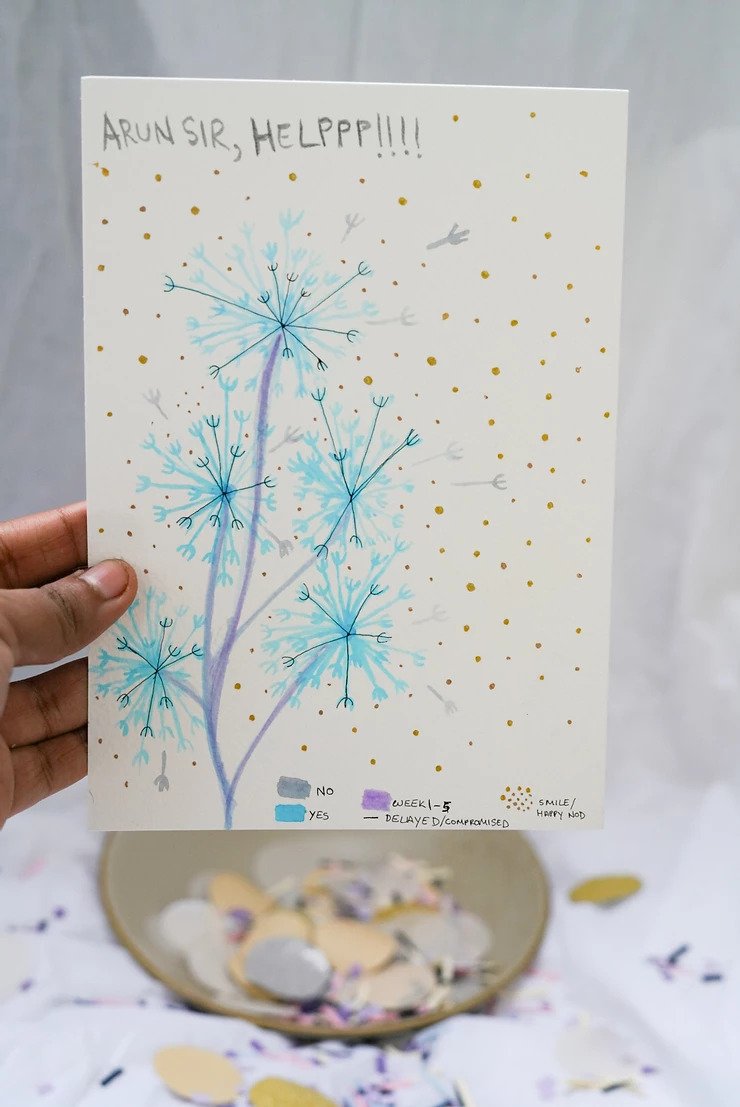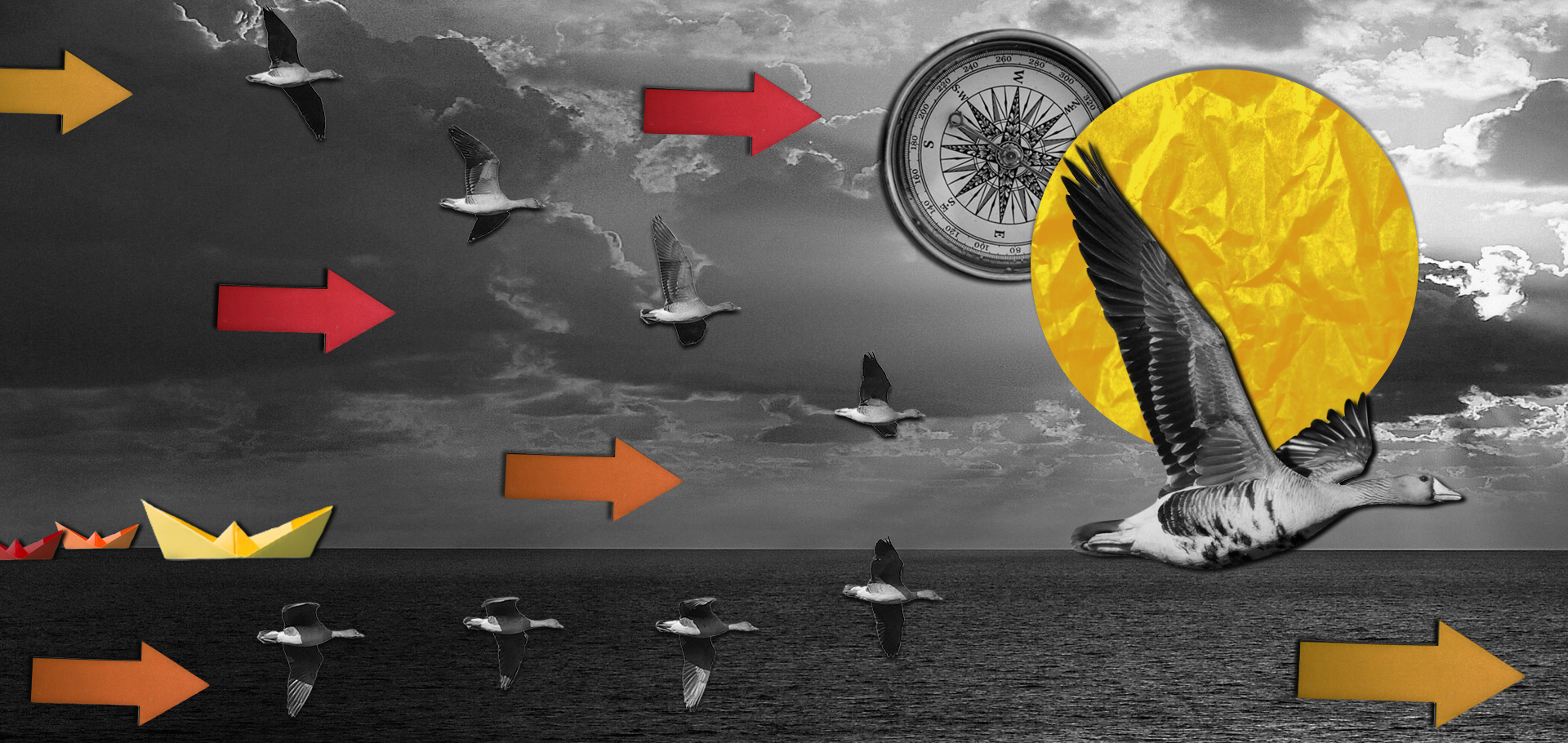An antithesis of design management
I have been trying to figure out what goes into leading and managing a creative team since I was unexpectedly entrusted with the responsibility of managing an extremely small team about a year back. What follows are my observations on the dynamics of leading a creative team drawn from watching my very first boss, Arun sir closely. At first sight everything he stood for came across as a complete contradiction to what I perceived a great manager to be. He had no gargantuan visions for the future, rarely micromanaged or called out directions, never held anyone accountable for not following rules or processes and had a quiet demeanor that contradicted the common notion of a dynamic design leader with energy that captivated the room.
This intrigued me.
Hence, I set out to illustrate his predominant character traits as charts only to realise that he is more than a manager, he is a leader who led his team with authenticity. While a lot of these charts were lighthearted, they opened my eyes to the truth that the antithesis of a manager is a design leader.
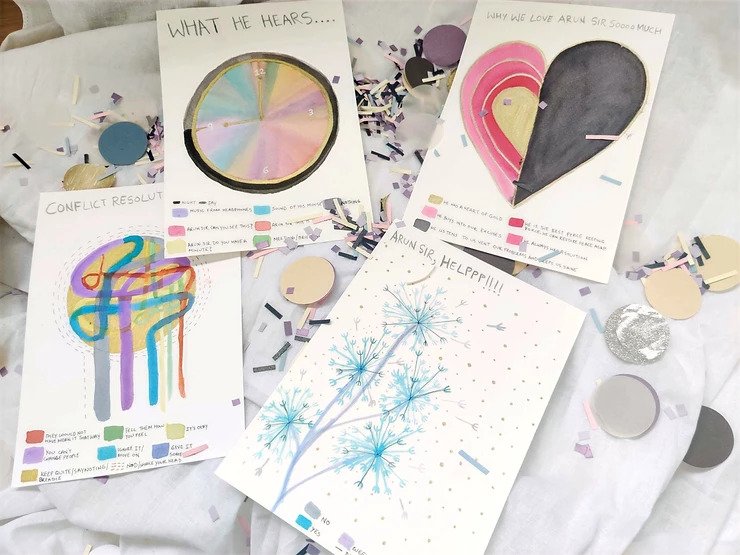
Antithesis #1
Passion does not give meaning to your life, passion is what gives meaning to your suffering.
I had imagined a passionate leader to be someone with a great vision coupled with the ability to motivate the team, someone who was certain of their decisions and communicated the same animatedly with high energy, until I came across an excerpt from one of Todd Henry’s books. The quote said “Great work requires suffering for something beyond yourself. It’s created when you bend your life around a mission and spend yourself on something you deem worthy of your best effort.”
After working at the same workplace for 10 years as a designer and now as the head of design, Arun sir logs into work at 10am with the rest of the team but he is consistently the last person to leave the office. Even after constant suggestions on delegating work better and not carrying over work into every weekend, never have i heard him complain about being overworked or work hastily. The joy on his face while being immersed in his design work until he was entirely satisfied with the creative outcome redefined passion for me and rekindled the passion of his teammates.

Antithesis #2
It is important to be heard, it is most important to hear people out.
What is the role of a leader in times of conflict? Is it to actively resolve the conflict by backing what is logically right? Or Use your wisdom to give direction? While your instinct is to solve the conflict in the least possible time, conflicts are more complex than arriving at the right solution.Every person views a context from their perspective and every person has a different interest and often a strong belief in their perspective, making even professional conflicts feel like personal attacks.
Everyone flocks to Arun sir to resolve conflicts partially because he is the wisest person on our team but mostly because they want their story to be heard. Watching him patiently hear all sides of the story, actively acknowledging how they feel while asking them questions that nudge them towards looking at the bigger picture, makes me understand the power of empathy. Conflict in opinions and interest is bound to happen in any team. While a smart solution could be a great game strategy, empathy and compromise scores you the home run.
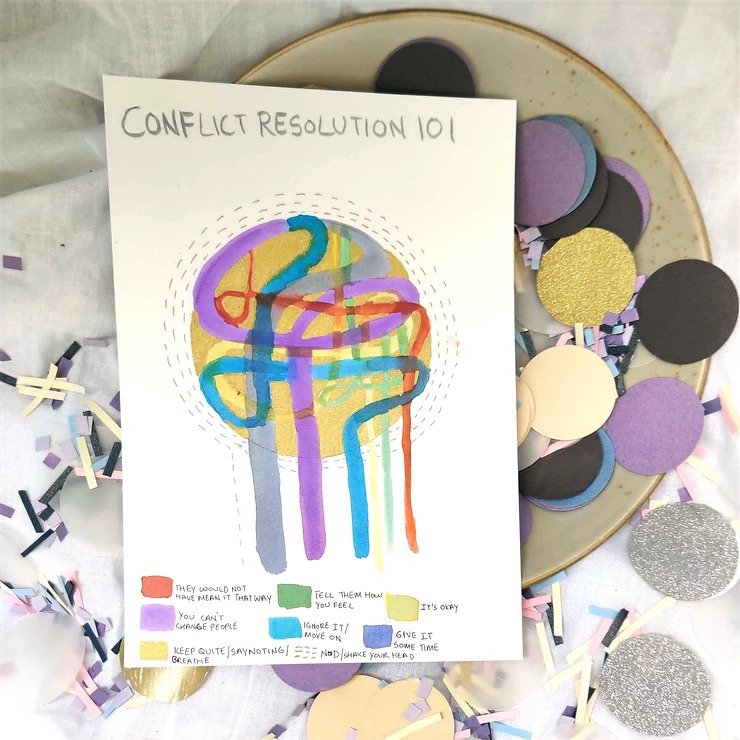
Antithesis #3
Broken rules derail a process, broken morale puts your goal off-track
A foolproof process is regarded by most managers as the best tool to meet goals and do’s & don’ts are formulated to ensure minimum deviation from the process. A good design process can factor in the iterative nature of design and even the divergent nature of creative thinking but great creative solutions stem from a creative state of mind. What it takes to achieve this state of mind is too complex to be factored into a process.
Arun sir consciously factors in the belief that all human beings are emotional and understands that it is impractical to expect your team to leave all emotional baggage at the door every morning as they step into work. It is also just as difficult to leave what happens at work behind at work, A emotionally draining work place is sure to impact your overall mental wellbeing and the quality of your personal life. In the course of the last year I have learnt the difference between completing a design task and completing the task really well. While a task completed solves the problem and has no one complaining, a great design solution thrills your stakeholders and creates more impact than you set out to create. When you have a talented team it is the intangible things like the right environment and being in a good mental space that increase your chances of creating great work, consistently. His mantra is simple, when you are completely invested in doing great work do everything that can tip the scales in your favour and ignore everything that won’t.
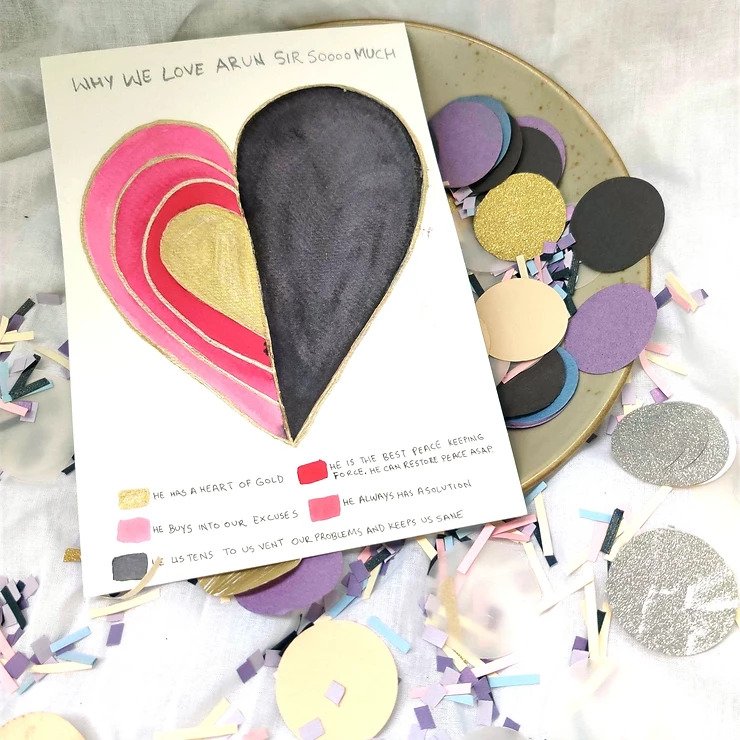
Antithesis #4
Be competitive, but first be nice
Pep talks, team outings and offsites can do very little to build a team spirit when in reality everyone is competing to stand out from the crowd and impress the boss. Achievements are glorified to encourage a competitive spirit but it can stop people from being vulnerable and build on their weaknesses to form a strong team.
I have never seen Arun sir acknowledge individual wins in a big way and have even complained about the same until I realised that it went a long way encouraging people to seek help when stuck and help each other out without the slightest thought of wanting to outperform their peers or make a scene of helping people out. Watching him treat his most competitive team member and his least experienced the same and always shifting the bar for people of different levels of competencies when it came to tracking progress taught me that people need different amounts of help at different phases and all that mattered was that everyone on the team was growing. He makes growth a reality, by compensating for what he holds back in giving praise by rendering help selflessly.
On a lighter note he is definitely not going to appreciate my efforts in putting this together and needless to say I ain’t getting any brownie points! We have a lot of things in common like our disinterest in socialising, our love for ice cream and even the same birthday! However, we approach life very differently. It has been a privilege to share so much time with Arun sir over the last couple of years and I wrote this because I really wanted to celebrate all that I have learnt from him on our birthday!
